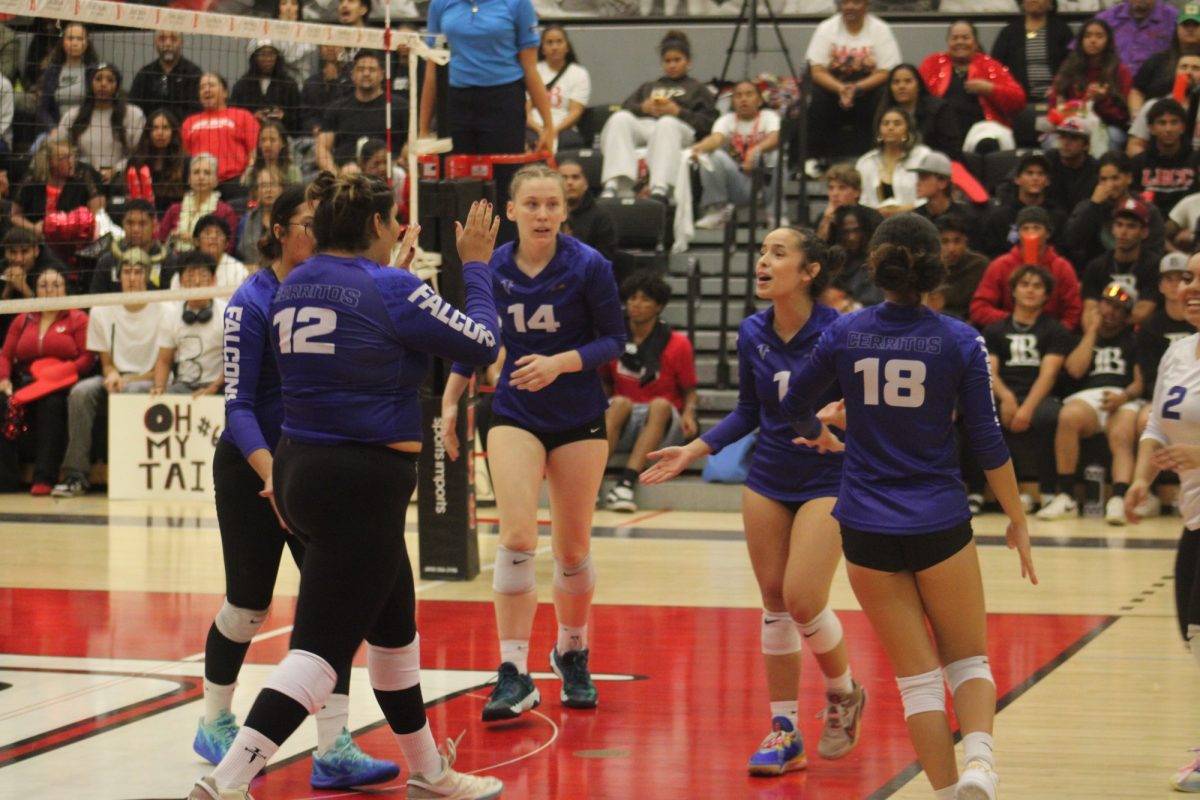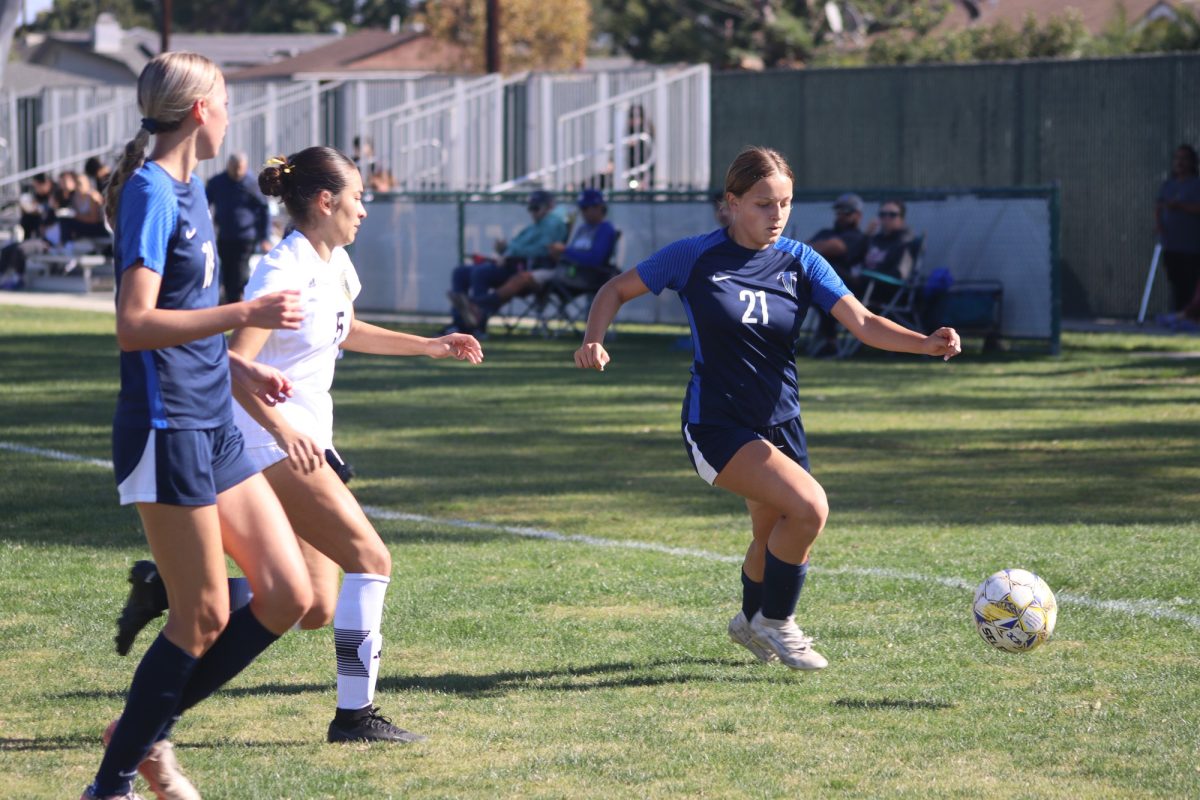Billie Jean King, Mia Hamm, Laila Ali, Lorena Ochoa and Serena Williams are all notorious women in sports who have faced opposition in the field. Students at Cerritos College can learn about them and other players by taking the Women in Sports class.
“I do get girls in there sometimes that think we’re going to play sports. We look at women in sports who have been visionaries, innovators, and champions and how they fit in one or all three of those categories,” said Debbie Jensen , instructor of the Women in Sports course.
“I teach homophobia, intolerance, and discrimination and what athletes have had to endure just because they want to play sports, because that’s a tough issue. The third part we’ll go into Title IX, which is very important for girls to know about.”
Title IX is part of the United States Education Amendments of 1972, which states that no person in the United States be denied the benefits or be subject to discrimination based on sex under any education program or activity receiving federal financial assistance.
In a class where a minority is being discussed, the disadvantages and misogynistic attitudes must be addressed.
The former women’s soccer coach talks about the beginnings of women in sports and how that correlated with women’s role in society and how that in turn affected their uniform in the field.
“We look at the life of Amy Homans, who was fighting for P.E. and what that looked like.”
“She was the first one to add education, the education piece had to be there for women, and what their struggle was even being a part of a faculty at a university, and the meaning behind it.”
Coach Jensen’s class details women’s struggle throughout the years in a patriarchal society where women needed male allies to get into Olympics, which is now filled with women athletes.
“A lot of times the sports helped get the women where they needed to get for advancement, women’s entrance into the Olympics and what it took, what women’s place was in society (within) a male dominated society in business and making all of the rules,” she said.
Jensen expressed a need for male athletes as allies in the fight against patriarchy in sports. We needed the help of men who were supportive of women playing and sweating and doing what they considered manly-like activities without prejudice and discrimination against them, she said.”
“We go through some quotes that are very ugly by Baron de Coubertin, who started the modern Olympics in 1896 and then how unbelievable it is to our generation that they could say such things. That ties in the end with Title IX, Jensen adds.”
“An Olympiad with females would be impractical, uninteresting, unaesthetic and improper,” reads an Official Report of the 1912 Games in Stockholm, which was most likely penned by Coubertin.
She expressed that the class allows her to expose an ugly side of sports and society that pertains to societal views on athletes and the masculine and feminine roles that are attached to them.
In a class that focuses on both past and present, Jensen showcases the still prevalent injustices at the hand of intolerance.
Coach Jensen shows a video titled: ‘Training Rules: No Drinking, No Drugs, No Lesbians.’
It details the 20 plus year reign of intolerant Penn State coach Rainey Portland, who humiliates anyone she perceives to engage in homosexual activity.
“We go through the class and we find that this type of discrimination in women’s sports by a female coach is still going on and that is a pivotal point in the semester,”she adds.
The seemingly transformative video has allowed students who struggle with intolerant families steer their views around.
“I feel proud and I think of quality when it comes to women playing sports, sports that back in time were considered to be only for men,” Marcella Sanchez, architecture major and student interested in the course said.
Coach Jensen believes Women in Sports is “a good class for women as well as men, because I think I get to introduce a few ideas of the way women have been treated because they were thinking outside of the norm of what society deemed appropriate for women.”
“I really want [students] to understand that we had to have somebody to break through those barriers and those were our pioneers, and the price that they had to pay just for women to be able to play sports and who would think about that.”
She added, “We study champion in two definitions. One, standing in the pedestal getting your medal.
“The other, women who were championed for the rights of women and I always hope that the kids will leave the class understanding discrimination and prejudice and what it means to have those ideas and what it means to actually act on them and the consequences of treating people unfairly just because they want to balance a ball or throw a ball.”










